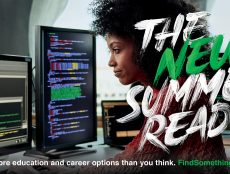
Articles
New Report Offers Evidence of Digital Learning’s Benefits
By Cait Etherington
April 21, 2018
From online courses to an initiative that entailed putting an Amazon Echo in every freshman engineer’s dorm room, Arizona State University continues to embrace digital learning on myriad levels. This week, the university, in conjunction with the Boston Consulting Group, released a new study on the benefits of digital learning: Making Digital Learning Work.
A case study of Arizona State University and five other institutions with a longstanding interest in digital learning, including the University of Central Florida and Rio Salado Community College among others, suggests that when colleges and universities take a “strategic approach to digital learning”, it’s possible to meet three key objects: improved learning outcomes, better access for disadvantaged learners, and a higher return on investment. While the report is enthusiastic about digital learning’s widespread benefits, at least some readers have questioned the report’s claims and methods.
Highlights from the Making Digital Learning Work
As in many other recent reports, Making Digital Learning Work: Success Strategies from Six Universities and Community Colleges emphasizes that a combination of face-to-face and online courses is ideal. Other success factors included making an effort to engage faculty, narrowing in on design, working effectively with third parties, and using data to refine courses and platforms, as well as learning outcomes.
Among the report’s many claims is the conclusion that digital learning expands access. Specifically, the report found increases in the proportion of Pell Grant-eligible students, minority students, older students, and female students. While this is an important finding, the report does not address the fact that other recent studies have found that in online courses, students from traditionally disadvantaged backgrounds do not perform as well as more privileged and well-prepared students. This, however, was also not the report’s only questionable finding.
Skepticism about the Report’s Claims and Methodology
Despite the Making Digital Learning Work‘s findings, at least some onlookers wonder if the report has exaggerated the benefits of digital learning to support ASU’s focused efforts on digital learning. Earlier this week, Inside Higher Education published reactions from ten education experts.
Clare McCann, Deputy Director of Federal Policy at New America, observes, “Online programs have shown huge variation in quality.” Deb Adair, the Executive Director of Quality Matters raised concerns about the report’s method: “If the purpose of the study was to specifically identify the factors leading to success, I would quibble.”
Despite such concerns, Making Digital Learning Work: Success Strategies from Six Universities and Community Colleges still makes a strong case for digital learning’s benefits and highlights best practices in the field.









Where is the money going? It’s not going to the teachers, so who is becoming billionaires off of our tax dollars?